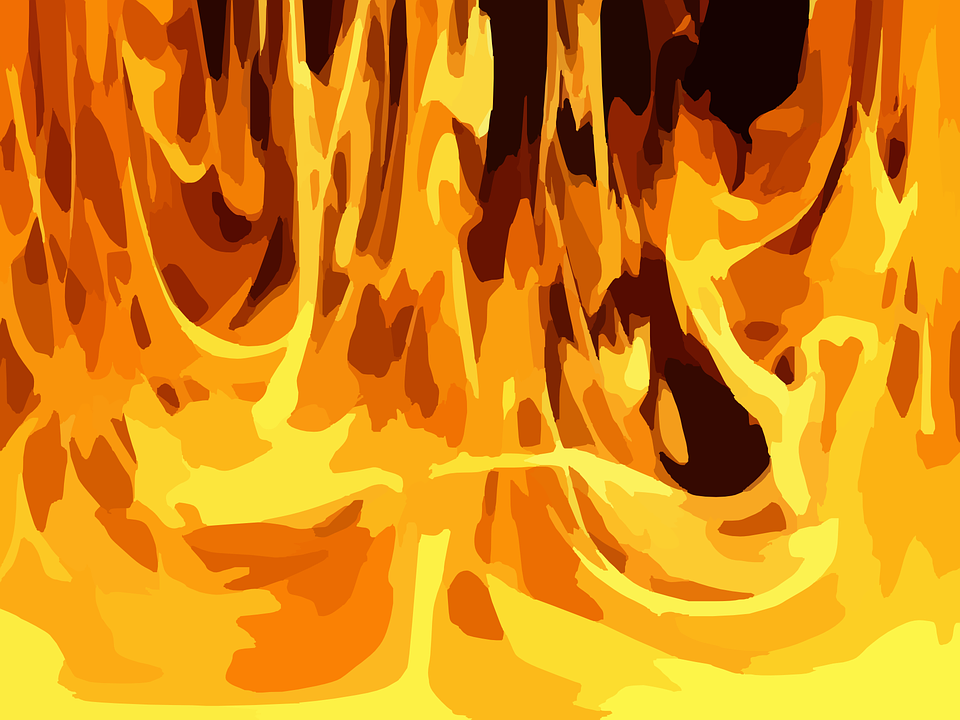8 modern tv shows that feel suspiciously like a spin-off of a literary classic - Op-Ed Piece
- Sarah Beach
- Feb 23, 2021
- 8 min read
Updated: Jul 31, 2021
Introduction
Here is another list by Sarah Beach. She always has a list on her mind.
If you have thoughts on the picks here, let us know. We'd love to hear if you agree or disagree with this.
Thanks for reading.
Enjoy.
Literary Quote

"He knew everything about literature except how to enjoy it."
- Joseph Heller
Book Deal
Title - Pride and Prejudice
Author - Jane Austen
Description - Austen's most popular novel, the unforgettable story of Elizabeth Bennet and Mr. Darcy. Nominated as one of America’s best-loved novels by PBS’s The Great American Read
Writing Prompt
Respond to our list. Do you agree or disagree with it?
Email us your response, or share it with us on one of our social media profiles.
The best responses will be featured in a future post.
Literary Meme

Book Giveaway
We will not be running a book giveaway for February. Next one will be in March.
8 modern tv shows that feel suspiciously like a spin-off of a literary classic - Op-Ed Piece
They say there is nothing new under the sun. In fact, it’s been argued that fiction always repeats itself, which is possibly why Shakespeare wrote in Sonnet 59:
“If there be nothing new, but that which is
Hath been before, how are our brains beguil’d,
Which labouring for invention bear amiss
The second burthen of a former child.
Oh that record could with a backward look,
Even of five hundred courses of the sun”
If by Shakespeare’s time we had already used up all the ideas, how is there hope for us in 2021? Is every new piece of fiction just a hopeless rip-off?

It’s true that if you trace the plots, characters, and tropes of popular fiction back, you find the same ideas threaded throughout history. A famous example is that Disney’s The Lion King is almost literally just Hamlet (that is, if Hamlet were performed by singing zoo animals). Sure, you have to stretch the details, a little. Not much, though.
Why didn’t Disney come up with a more original story than Shakespeare’s Hamlet for their zoo-animal musical extravaganza? (Only later to remake that same movie as “live” CGI zoo animals?) Is it because humans are boring and stupid and can’t come up with any new ideas, ever? Are we deliberately capitalizing on other people’s hard work through a sort of natural laziness?
It’s more likely that we’re just sharing in a common humanity. Familiar stories feel, well, familiar. We like the comfort of our usual characters and plots, dressed up in new costumes and plopped into new settings, mixing the safety of similarity with the excitement of variety.
The point isn’t that new stuff can only be a boring rip-off of the old. It’s more like, we stick to familiar tropes because it feels good to us. On some level, it rings true. And we like it.
So, what literary tropes pop up in the fiction of today?
Orphans, for one, run rampant through the pages of literary history. You can’t really read, watch, or listen to a story without there being some form of parental death. On some level, we relate to being lost and alone in the world, and we cheer on the valiant orphan as he or she overcomes impossible odds.
You might also be familiar with boy-meets-girl, small-town overcomes an obstacle, eccentric scientist causes a problem, or lone hero defeats insurmountable enemy almost-singlehandedly.
No matter how many times we meet an orphan, small town, eccentric scientist, or lone hero… we still cheer them on.
Sometimes we cheer them on for season after season if the fiction is a tv series.
Unless you are living under a rock, you are probably aware of the vastly popular television series of the last several decades. The 20th and now 21st century has become a golden age of fiction through the silver screen and then the television tube, which brought popular media to the masses. For almost nothing, we can enjoy fiction right in the comfort of our own homes. Streaming services, especially, have brought televised fiction to our very fingertips (and binge-watching to our bedrooms).

As a tribute to the tendency of fiction to blithely repeat itself, here is a list of 8 modern popular tv series that share some similarities to classic literature, kind of like The Lion King is literally just zoo animal Hamlet.
So if you like these modern shows, why not give classic literature a try? The similarities might surprise you, stretch or not!
Without further ado, here’s the list of 8 modern tv shows that feel suspiciously like a spin-off of literary classics.
The Golden Girls: Cranford by Elizabeth Gaskell
A classic show, The Golden Girls involves a group of vibrant elderly women who scheme, dream, and accomplish situational comedic goals while developing their relationships with each other. So does Cranford. Published in installments between 1851 and 1853, Gaskell’s novel chronicles the goings-on of a small-town phalanx of elderly ladies ruling the local inhabitants through clever and organized attention to local news (read: gossip). It’s hilarious.
Get it on Amazon here.

The Office: Charles Dickens’ Little Dorrit
Although much of the popular tv classic The Office takes place in, well, an office, much of Dickens’ literary classic takes place in a debtor’s prison in Southwark. However, the main impetus for the machinations of London society were run by the office buildings of the day – not the people in the offices, but the organizational trappings of a corrupt society (kinda like in The Office). Little Dorrit also contains plenty of drama, although cannot boast a love story quite like Jim and Pam’s, to be fair. Still, give me a silent long-held devotion like Arthur Clenham’s any day.
Get Little Dorrit on Amazon here.
The Bachelor: Pride and Prejudice, by Jane Austen
The main difference between Jane Austen’s literary classic, Pride and Prejudice, and the modern reality tv series The Bachelor seems to be that Austen seems to have been trying to be satirical, and The Bachelor seems to be for real. Still, people get them mixed up! Is Pride and Prejudice/The Bachelor for real? Or is it satire? We’ll never know, but I’m confident that the season with Mr. Wickham would be filled with the juiciest intrigues imaginable. Mr. Collin’s season would be the most cringe-y, and Mr. Darcy’s season would have everyone swarming to sign up for the next round (and sobbing on the couch when he gets taken).
Get Pride and Prejudice on Amazon here.

The Good Place: Dante’s Inferno, Purgatorio, and Paradiso
The main similarity between Dante’s works and The Good Place is the obvious journey to the afterlife, and both works delve into all three levels of heaven, purgatory and hell. However, the similarity goes a little further. Both allegorical works are containing plenty of intrigue; they also both contain plenty of references to current affairs. If you like taking a good long look at your life choices in The Good Place, why not try Dante’s Divine Comedy next?
Get it on Amazon here.
Parks and Recreation: George Eliot’s Middlemarch
Alright, here me out: Parks and Rec is about a little-known but ambitious woman trying to make waves in her small-town locality yet is constantly thwarted by social norms and general skullduggery. So is Eliot’s Middlemarch. Leslie Knope/Dorothea Brooke just wants to create a better world but needs to go through several volumes of character development first, as do the rest of the local inhabitants. Elections, dinner parties, outings, rallies, trips, and even a riot or two – Parks and Rec/Middlemarch has them all.
Get Middlemarch on Amazon here.
Big Bang Theory: Mary Wollstonecraft Shelley’s Frankenstein
Although the main connection here is admittedly just science, the two pieces are both about the ethical practice of Science (with a capital S), the nature of scientific reasoning, and the types of people who practice them. Victor Frankenstein is an emotional, highly sensitive, dogmatic, idealistic, driven young man determined to make his mark on the world. So is Sheldon Cooper, although the other characters in Big Bang Theory also fit the bill. Of course, Shelley’s Frankenstein is a horror classic, and Big Bang Theory is a sit-com, but the sort of other-worldly, faintly absurd, slightly disturbing sequences in both fictional worlds have plenty in common. We can only thank our lucky stars that Sheldon’s interest wasn’t in AI.
Get a copy of Frankenstein on Amazon here.
Survivor: Robinson Crusoe by Daniel Defoe
Are you interested in the ins-and-outs of survival on a remote, deserted island, with precious little hope of rescue? Well, look no further than Robinson Crusoe/reality series Survivor. With an emphasis on drama, we will watch the inhabitants of said island as they painstakingly find food, gather wood, interact with other island inhabitants, and stare dazedly into the distance. And we will do it for a long, long time.
Get Robinson Crusoe on Amazon here.
Breaking Bad: Robert Louis Stevenson’s The Strange Case of Dr. Jekyll and Mr. Hyde
Respectable, upstanding, and personable scientist Henry Jekyll/Walter White unexpectedly turns dark, masquerading as his alter ego Edward Hyde/Heisenberg, after which he must avoid the long arm of the law. As the novella/series advances, Jekyll/White must work harder and harder to maintain equilibrium as the double life starts to take hold. What is the nature of morality? What counts as a crime? These and other questions are explored in Breaking Bad and Jekyll and Hyde, although the settings and outcomes are admittedly different.
Get The Strange Case of Dr. Jekyll and Mr. Hyde on Amazon here.

So, there you have it. The next time you binge one of these shows, why not try a literary classic with similar themes along with it? If Shakespeare was right, it won’t be long until the tropes are repeated, anyway.
In the meantime, we can all take comfort in the familiarity of repetition. Although there are admittedly differences of culture, belief, fashion, and myriad other dynamics between the 21st century and these much-older classics, the old adage about the constancy of change rings true here. The stuff that mattered to people hundreds of years ago still matters to us today. Perhaps the similarities are more than the differences in the end.
What else would you add to this list? What similarities have I missed?
Ending
This piece caused a back and forth between the blogger and the eidotr. Even we didn't agree on this completely.
Follow us on social media.
Thanks for reading
If you do like this post, please share this on social media. It means a lot to us. Thanks.
Read more
Greg Luti pieces - Anastacia Walden pieces - Alonzo Cortez pieces - Brooke Smith pieces - Joey Carneiro pieces
Read the Current Theme - Read Past Themes - Read Thanksgiving pieces - Read Halloween pieces - Read Election pieces - Read Christmas pieces
Check These Out
About The Blogger
Sarah Beach is a writer, editor, and researcher with an intense need for herbal tea. She writes about a variety of subjects, including social media, mental health, memes, and holistic wellness. Sarah is a graduate student in the field of Communication Studies and teaches rhetoric. She is also a registered Reiki practitioner and enthusiastic ukulele player. When she’s not writing, you can find her wandering aimlessly outdoors or watching period dramas.
Learn More Of The Blogger





































Comments